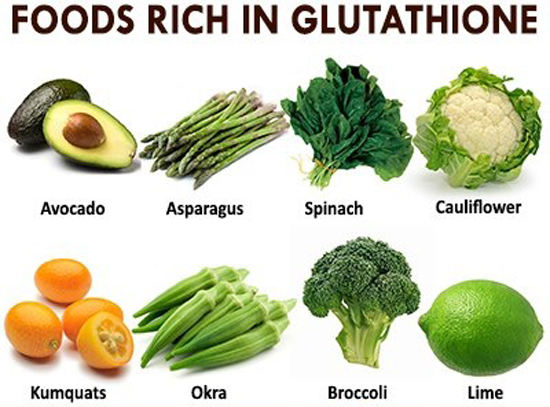Glutathione holds the key to managing over 100 autoimmune diseases known today
Autoimmune diseases are on the rise, with more than 23 million people living with an autoimmune disease today in the U.S. alone. Because they involve the immune system essentially attacking the tissues and cells in a person’s body, they’re notoriously difficult to treat. However, scientists have found that one disease-fighting antioxidant, glutathione, could be the key to keeping these types of illnesses under control.

Researchers aren’t entirely sure what causes autoimmune disease, although it’s believed that leaky gut is involved. In the past, leaky gut was believed to be a symptom of autoimmune disease, but now scientists think that it plays a far bigger role in these conditions. This heightened intestinal permeability enables bacteria, toxins and antigens to get into the bloodstream, where they trigger autoimmune reactions and spur acute inflammation.
Leaky gut is indicated by diarrhea, allergies, weight gain, obesity, chronic fatigue syndrome, ulcers, and inflammatory bowel diseases. There are lots of factors that can contribute to leaky gut, including environmental toxins, a high-sugar diet, GMOs, stress, and bacterial imbalances in the digestive system.
How well the body can recover from leaky gut is now believed to be dependent on the body’s ability to efficiently recycle glutathione, an important antioxidant used by every cell in the body. Glutathione is responsible for tasks like helping the liver detoxify and eliminate waste from the body, controlling oxidative damage to cells, and keeping inflammation in check.
Unfortunately, aging, poor nutrition, hormonal imbalances, medications, injury, infection and stress can deplete glutathione, so recycling it is essential to good health. It’s not surprising, then, that studies show people who have autoimmune disease have reduced glutathione levels. Recycling glutathione depends on having the right balance between glutathione’s two main forms: reduced and oxidized. When glutathione recycling is functioning optimally, it can protect cell mitochondria, give the immune system a boost, and promote tissue recovery – not to mention healing leaky gut syndrome.
How can you support glutathione recycling?
There are several lifestyle changes you can make that support glutathione recycling. Eating a healthy diet that is free from GMOs and low in sugar is a crucial step, and it’s also important to stick to a regular exercise routine. Stress reduction might be easier said than done, but it’s also essential, so consider meditation, hobbies, or other proven methods of addressing your stress. Getting enough sleep can also help.
Many people turn to supplements to help ensure proper glutathione recycling. The mineral selenium is important for helping covert reduced glutathione to the oxidized variety, while N-acetyl cysteine can raise the levels of glutathione found in older cells. Vitamin C converts oxidized glutathione to the active reduced form, helping to keep the right balance, and B-complex vitamins help with glutathione production.
There are also some herbs that can help give the process a boost. Milk thistle is said to improve the balance between the two main forms of glutathione, while cordyceps fungi and gotu kola are also useful.
Autoimmune diseases can strike at any age, and they include conditions such as rheumatoid arthritis, lupus, celiac disease, inflammatory bowel disease, and multiple sclerosis. Whether you’re already dealing with one or you’re hoping to avoid developing such illnesses, paying attention to your glutathione levels can make a big difference.

yogaesoteric
March 29, 2019
